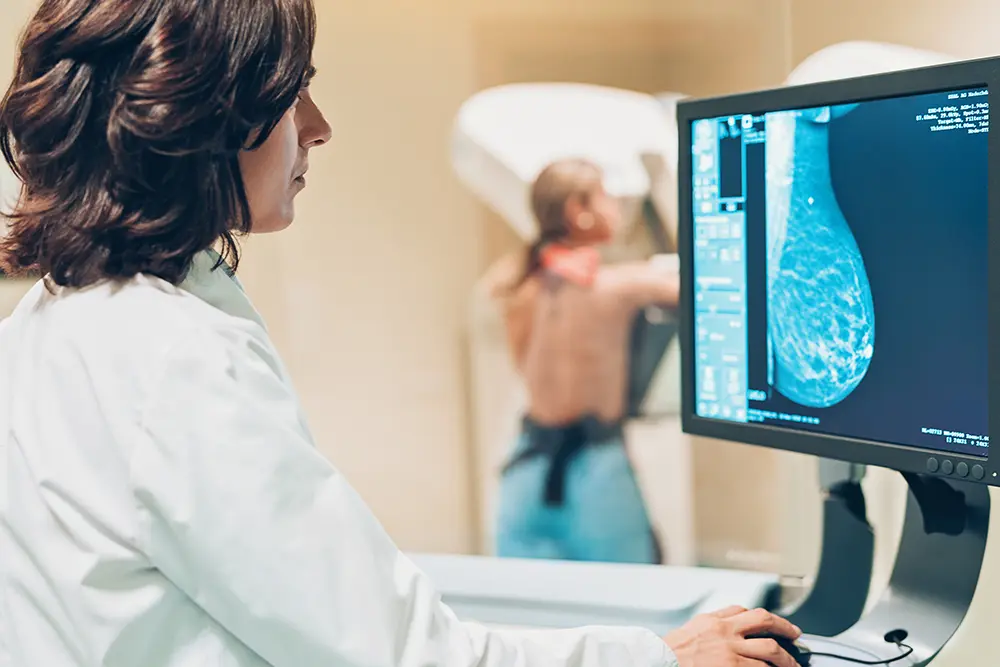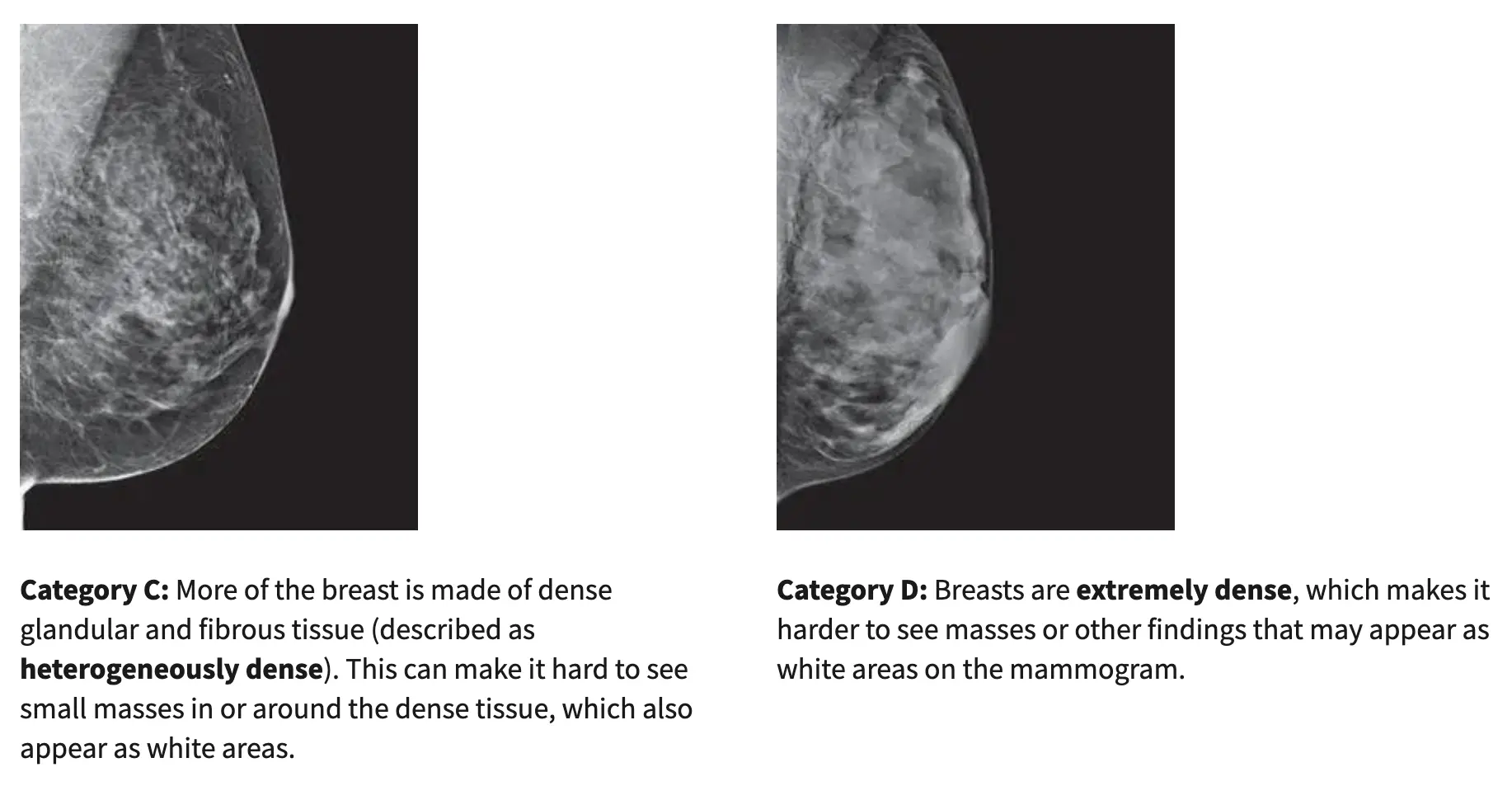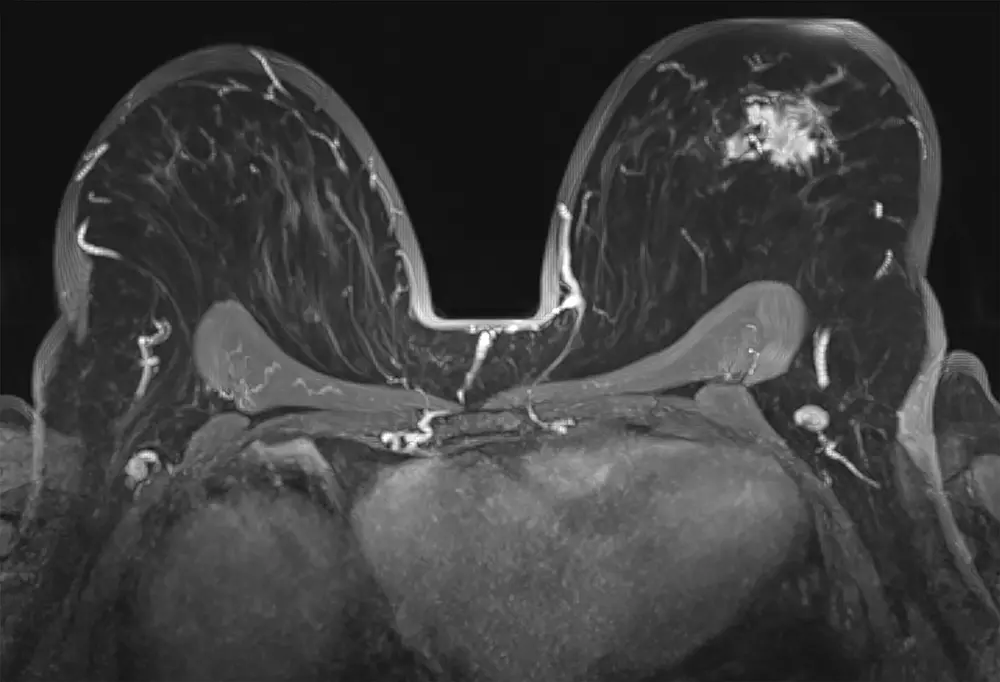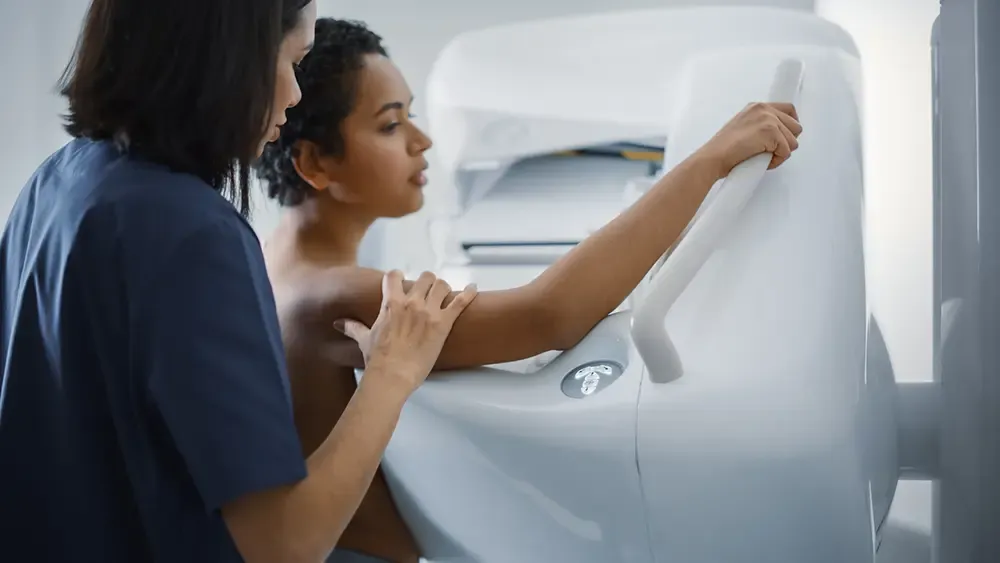A recent segment from NBC Nightly News shared how some patients were denied coverage of supplemental breast cancer screenings. In this blog, Dr. Jennifer Carroll explains why supplemental imaging may be needed, different types of screenings and what is typically covered by insurance.
Mammography has been widely adopted as the main method to identify early breast cancer in most women. It is recommended to start annually at the age of 40 in women with an average risk of breast cancer. There are a few situations in which additional breast imaging may be recommended.1
Diagnostic imaging
This is recommended as a follow up to screening mammography or if a woman has a concern in the breast. This typically includes a more detailed mammogram and an ultrasound.

Dense breast tissue
Women with dense breast tissue, referred to as Category C or Category D density, may benefit from supplemental breast imaging. Options for supplemental imaging vary based on other risk factors and resources in the area. These may include:
- Contrast Enhanced Mammogram
- Molecular Breast Imaging
- Ultrasound
- MRI

High Risk Patients
Women with a higher risk of breast cancer may benefit from enhanced screening. This is typically an annual MRI and mammogram.

Insurance Coverage
Screening mammograms are required to be paid for by most health insurers following The Patient Protection and Affordable Care Act (ACA) for women ages 40 and older.2
For women at a high-risk, health insurers usually cover supplemental imaging per guidelines. However, insurance deductibles, out of pocket max, co-insurance and copays apply.2
The ACA does not apply to Medicare or Medicaid. However, Medicare Part B covers diagnostic breast imaging with applicable coinsurance and deductibles.3
References:
- Position Statement on Screening Mammography
- Mammograms Under the Afforable Care Act (ACA)
- Medicare coverage for mammograms | News & articles | UnitedHealthcare
Dr. Jennifer Carroll see patients at our Bloomington and Burnsville clinic locations.
Her Areas of Special Interest include:
- Breast Disease
- Breast Cancer
- Squamous Cell Skin Cancer
- Basal Cell Skin Cancer
- Melanoma
To request and appointment with Dr. Carroll,
please call (952) 208-6005 or request an appointment online





